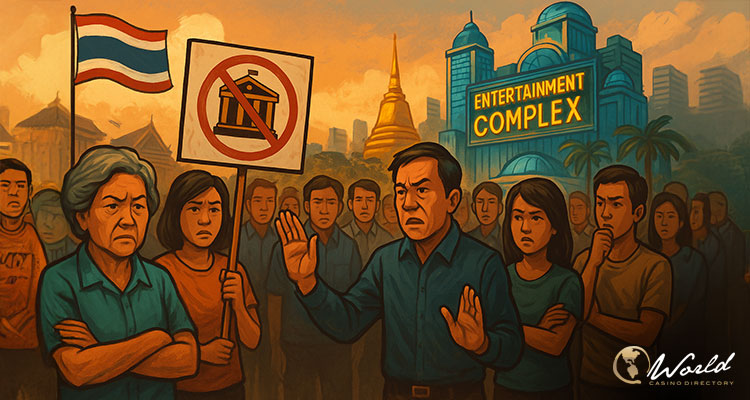A fresh nationwide survey has exposed sharp divides among Thai citizens regarding the future of the proposed Entertainment Complex Business Act, particularly the contentious inclusion of casinos. Conducted by the National Institute of Development Administration (Nida Poll) between April 21 and 23, the poll gauged the opinions of 1,310 adults from various demographics across the country.
While the bill aims to establish entertainment hubs in major cities, the casino component has emerged as a sticking point. The survey reveals that 46.18% of respondents believe that removing casinos would prevent the bill from passing through the House of Representatives, according to The Nation. Meanwhile, 32.67% were more optimistic, thinking the legislation could still move forward without gambling facilities, and 19.01% insisted that excluding casinos would make the bill’s introduction impossible.
Public Disinterest Looms Over Entertainment Complex Plans
Despite the heated political debate, public enthusiasm for the proposed entertainment complexes appears muted. Almost half of those surveyed (45.73%) said they were indifferent to both the entertainment venues and casino elements. Another 27.24% indicated that they saw casinos and entertainment facilities as equally important. Meanwhile, 19.47% prioritized the entertainment side over gambling, and only a small fraction — 7.56% — placed casinos as their main concern.
The results present a challenge for the ruling Pheu Thai Party, which supports the bill and views casinos as just one piece of a broader economic development strategy. However, opposition from coalition partner Bhumjaithai Party, especially its secretary-general Chaichanok Chidchob, has complicated the legislative process.
Chaichanok’s Anti-Casino Position Sparks Political Unrest
Chaichanok Chidchob’s firm rejection of casino legalization — stating he “would never agree with casinos” — has amplified tensions within the governing coalition, according to the Bangkok Post. The poll indicates that 35.80% of respondents regarded Chaichanok’s stance as “righteous.” Simultaneously, 29.08% believed he was maneuvering for political leverage rather than taking a moral stand, while 27.63% considered it a personal opinion not reflective of Bhumjaithai Party’s official position.
Adding to the complexity, 22.44% of participants thought Chaichanok was merely seeking attention and would eventually yield to party consensus. A further 20.38% expressed confidence that the Pheu Thai Party would ultimately find a way to pass the bill, casinos included.
Signs of potential political instability are also evident. Around 10.84% of those polled interpreted internal conflict brewing within Bhumjaithai, while 9.39% suspected the casino controversy could fracture the coalition. Another 6.72% foresaw the possibility of Bhumjaithai being pushed out of the alliance altogether, highlighting growing unease within the political landscape.
Entertainment Complex Bill Faces Uphill Battle
Beyond political maneuvering, the prospects for the entertainment complex bill itself appear grim. Only 27.24% of those polled expressed equal interest in entertainment venues and casinos. An even smaller proportion, 7.56%, cared chiefly about the casino component, reflecting an overall lack of widespread public support.
Financial interests behind the push for casinos are strong. Supporters within the government, including Prime Minister Paetongtarn Shinawatra, have touted potential economic benefits, aiming to position Thailand as a major gambling destination, potentially rivaling Macau and Las Vegas. Early plans have suggested Bangkok, Chon Buri, Chiang Mai, and Phuket as prime locations for new entertainment complexes.
Yet the Nida Poll findings suggest that the path forward remains fraught. Nearly half the public remains apathetic, and fewer than a third believe the bill will clear its first reading in Parliament. Approximately 19% said it wouldn’t even reach higher levels of legislative review if casinos are excluded, underscoring the complexity of advancing the initiative.
Industry players had initially hoped to capitalize on this momentum, especially following Japan’s recent groundbreaking ceremony for MGM Osaka, Asia’s newest major integrated resort set to open by 2030. Thailand’s entry into the casino sector was seen as a timely opportunity. However, current public sentiment and internal political strife could delay or derail these ambitions altogether.
For now, the fate of Thailand’s entertainment complex proposal hangs in the balance, caught between political calculations and a public that seems, at best, lukewarm toward the entire project.



